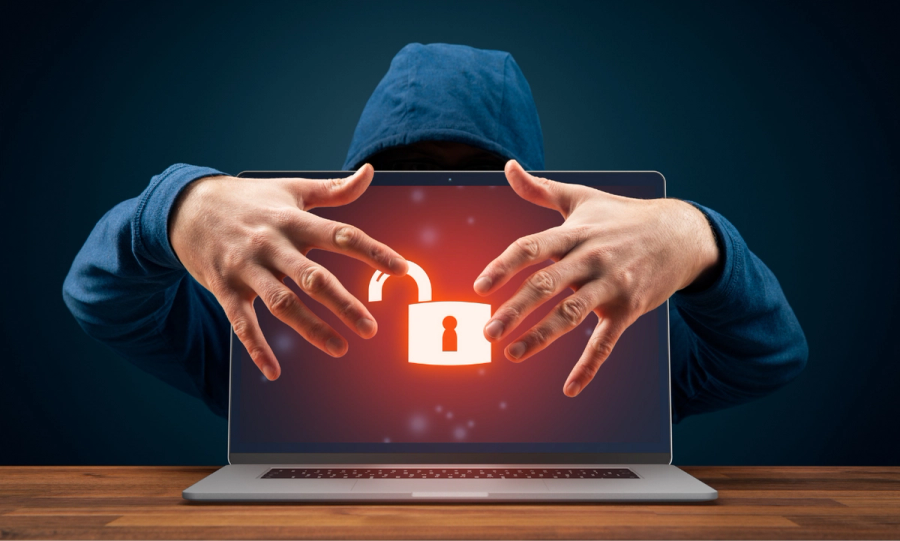
Has anyone ever asked you for your Social Security number, bank account information, or a copy of your driver’s license? It may seem like an odd request to get, and you should be aware that sharing any of this sensitive data could have serious consequences. Hackers can use the personal information they collect from innocent people to perform malicious activities such as identity theft, credit card fraud, etc. In this blog post, we’ll take a closer look at some of the tactics hackers use to obtain confidential data from unsuspecting victims–and what you can do to protect yourself against these threats.
Overview of the Potential Threats of Identity Theft
Identity theft has become an increasingly prevalent issue in today's digital age. Numerous potential threats can put our personal information at risk. For instance, phishing scams and data breaches can compromise our login credentials and other sensitive data. Cybercriminals may also use keystroke logging software or exploit vulnerabilities in our wireless networks to gain unauthorized access to our personal information. Physical theft, such as mail or rummaging through trash, can also lead to identity theft. Unfortunately, the consequences of this crime can be devastating and long-lasting, so it is crucial to stay vigilant and take steps to protect our personal information from potential threats.
How Hackers Access Your Personal Information
In this digital world, it's impossible to escape the reality that hackers exist and are always looking for ways to access and exploit our personal information. They can access passwords, email addresses, bank account details, and even sensitive documents with just a few clicks. These cunning criminals use various techniques to bypass firewalls, trick users into giving away sensitive information, and exploit vulnerabilities in software and hardware. Whether through phishing scams, malware, or simply guessing passwords, it's clear that the threat of hackers is real and something that we all need to be aware of. So, how can we protect ourselves? By staying vigilant, practicing good cyber hygiene, and visiting educated on the latest tactics used by hackers, we can do our best to stay one step ahead of these cyber-criminals.
Possible Outcomes from a Data Breach
A data breach can have various possible impacts on individuals, organizations, and even entire industries. Personal and financial information may be compromised for individuals, leading to identity theft or financial losses. Organizations may experience reputational damage, loss of customer trust, and legal and financial repercussions. Sometimes, a data breach can disrupt entire industries, such as when a significant retailer experiences a violation affecting multiple businesses across the supply chain. Whether it's small, local companies, or large corporations, the impact of a data breach is far-reaching and can have long-lasting consequences. That's why everyone must take proactive measures to protect sensitive information online and offline.
Tips to Keep Your Personal Information Secure
In our rapidly advancing technological age, securing our personal information has never been more critical. With so much data being shared online, ensuring that any information we provide remains safe from prying eyes can be challenging. Fortunately, we can take steps to keep our personal information secure. One tip is to create complex and unique passwords for each account, as using the same password across different websites increases our vulnerability. Another tip is to ensure we have up-to-date antivirus software installed on our devices. Finally, it is essential to be aware of phishing scams and never share confidential information over email or text. By following these tips, we can all take proactive steps to keep our data secure and protected.
Steps to Take If You Suspect Your Data Has Been Compromised
Data breaches are becoming increasingly common and can happen to anyone. Taking immediate action is essential if you suspect your data has been compromised. First, check your accounts for any signs of unauthorized activity. Next, change your passwords for all accounts as a precautionary measure. It's also important to reach out to your bank or credit card company to inform them of the potential breach and monitor your financials closely. Don't forget to report the incident to the appropriate authorities, such as the Federal Trade Commission, and consider enrolling in identity theft protection services. Being proactive and taking swift action can help limit the damage and protect your personal information.
Ways to Protect Yourself from Hackers in the Future
As technology continues to evolve, so do the methods of hackers. It's becoming increasingly important to protect yourself from their attacks. One way to do this is by using complex and unique passwords for all your accounts. You should never click on suspicious links or download attachments from unknown sources. Keeping your software and security systems updated is essential to prevent potential vulnerabilities. Another preventative measure is to be cautious when using public Wi-Fi and avoid sharing personal or sensitive information over these networks. Finally, stay informed and educated about the latest hacking techniques and how to protect yourself. By taking these steps proactively, you can better secure and safeguard your personal information against future attacks.
Conclusion
Identity theft can be a frightening prospect. But, with the proper understanding of how hackers get your personal information and what tools are available to protect yourself, you can take comfort in knowing that you can defend against this malicious activity. Taking a proactive stance when it comes to cyber security is the best approach to prevent identity theft from happening in the first place. Keep your passwords secure, use two-factor authentication, and, if necessary, enroll in a credit monitoring service. As long as you remain vigilant, you can minimize the chances of someone obtaining your private information online. You have all the power to stay safe—take control today!